Home » Journal Articles » Thoughts & Opinions » SUMMER RIVER WALKS ON THE PILCHUCK
SUMMER RIVER WALKS ON THE PILCHUCK
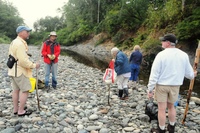
By Karl Hufbauer
Camp-B attendees are welcome to join into before-breakfast excursions to nearby Pilchuck Creek. Those who walk this small river’s shallows and bars learn about local geology, find stones to carve, and enjoy the tranquil environs.
The stones on the bars are freshened every year by raging floods. Most (the basalts, porphyries, gneisses, schists, serpentines and occasional grossular garnets and jades) were quarried out of the upstream terrain by the river. But some (the granites, dunites, quartzites and occasional marbles) were carried to the river’s watershed by Ice-Age glaciers. Stones that have survived the river’s rough and tumble before reaching the two-mile stretch we walk in the summers are generally of considerable hardness.
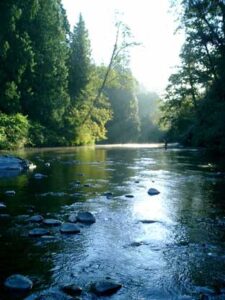
Some searchers pay most attention to form when collecting stones, favoring either especially symmetrical ones of uniform composition or especially odd-shaped ones of exceptional toughness. Others, by contrast, give priority to stones with unusual patterning such as bold stripes or colors. Most see more stones of interest than they can possibly get back to their carving sites.
No matter what the quantity of stone collected, virtually all who walk the Pilchuck return to the Camp-B Symposium refreshed by their experiences along the river. Some have gotten a thrill by rounding many of its bends to see new sights. Others have simply taken special pleasure in observing the play of water and light, and being soothed by the sounds of water running over rocks and the wind moving through the trees.
With a walking stick, small bar, river shoes, and collecting bucket or bag, you can enjoy all that the Pilchuck has to offer.
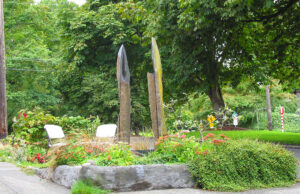
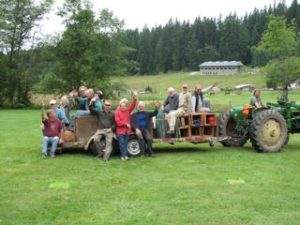
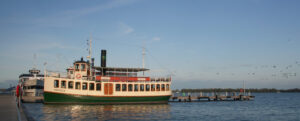


We need some kind of descriptive text here.